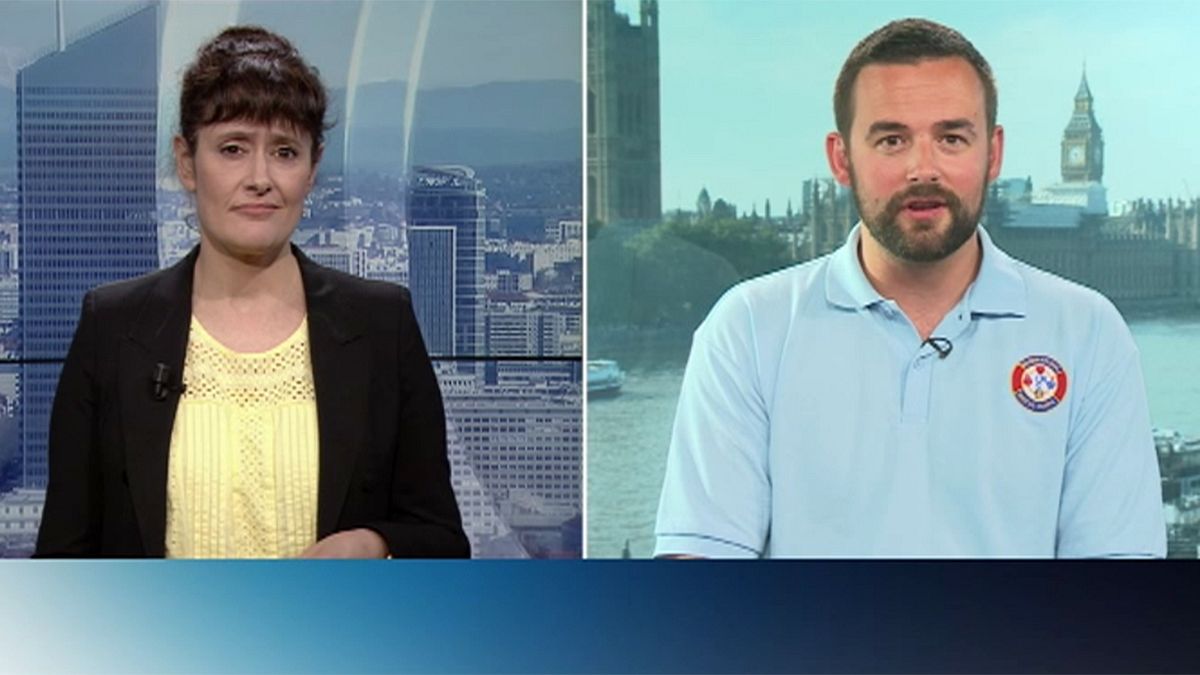Search and rescue teams are battling to save lives in the rubble of the Italian earthquake.
Search and rescue teams are battling to save lives in the rubble of the Italian earthquake.
For an insight into the sort of work they are doing, we talked to James Perry, National Training Officer of the UK-based International Rescue Corps.
It was set up after the 1980 Irpinia earthquake in southern Italy which left nearly 3,000 people dead.
Lesley Alexander, Euronews:
“The clock is ticking. What are the main challenges rescue teams face now and what chance, do you think, of finding more survivors?”
James Perry, International Rescue Corps:
“The chances of finding people alive are still quite high. People can survive up to 3, 4 days without water. As soon as it starts going over that time period, then people who are trapped underneath rubble without any access to water will start to fade.
“Having just returned from Italy, actually from holiday, four days ago, I can tell you that the main problem the teams will be facing is the heat…as the teams are working around the clock, 24/7, without sleep, it will be dehydration, making sure people don’t have heatstroke, heat exhaustion.”
Lesley Alexander, Euronews:
“What does it take to be a rescuer?”
James Perry, International Rescue Corps:
“It is not a glamorous job being a rescue worker. A lot of people tend to think you are going to be clapped off a plane, or have a hero’s welcome. And it is not like that. It takes someone with quite a lot of humility, generally. Obviously, you need to have quite a lot of emotional strength because you are going to be seeing people who are physically injured. You are going to see death and a lot of people who have lost everything in their lives and it takes quite a lot to deal with that.
“And probably most importantly, in those situations where you have these horrible things happening around you, it is good to be able to keep a smile on your face and make sure you can look after yourself and look after your team members, more importantly. You know…look after the people who are around you so that you can operate as an effective unit.”
In Amatrice, Italian @RedCross volunteers continue to support & help those affected by the earthquake @crocerossapic.twitter.com/7f0gHsQ1Ew
— RedCrossEU (@RedCrossEU) 24 août 2016
International search & rescue is currently not required in Italy, although we continue to monitor the situation for further development.
— Rescue Corps Tweets (@intrescue) 24 août 2016
Lesley Alexander, Euronews:
“Well, thankfully there are success stories too. What is that moment like when you bring someone to safety?”
James Perry, International Rescue Corps:
“It is the best feeling you can get… when you have really helped someone who is in the depths of despair and you can bring them out of that. It is a joyous occasion. You are always mindful when you have rescued someone, of course, that you are just constantly monitoring them and making sure that they stay nice and healthy while you get them to a place where they can have some permanent aid…You just feel like you have done some good in the world, basically.”
